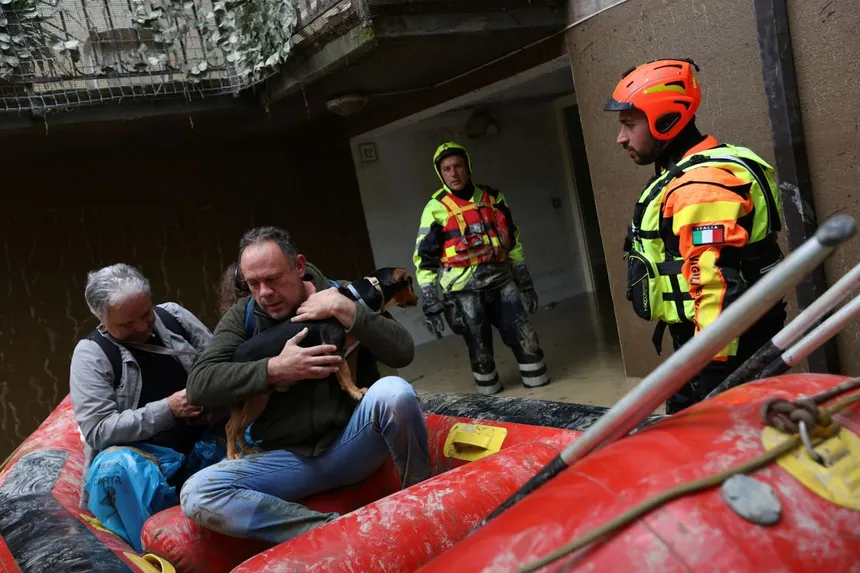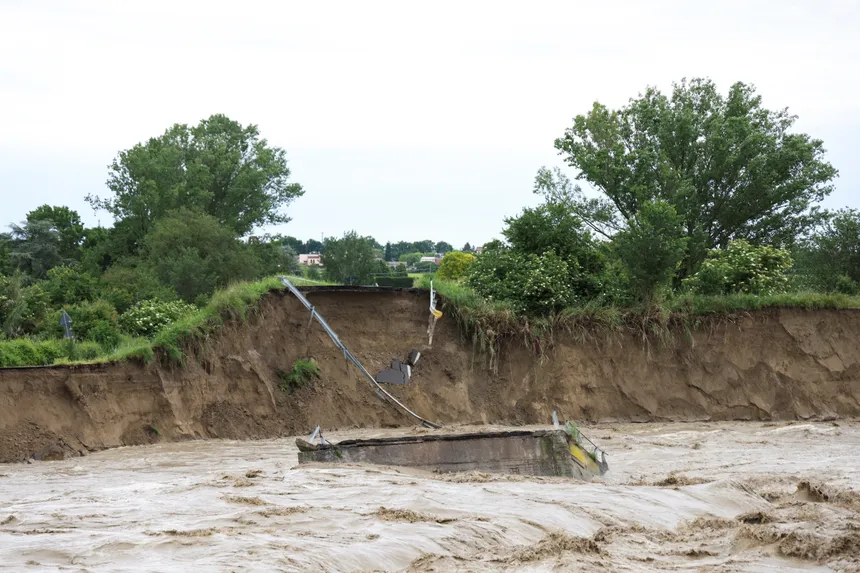After the catastrophic flooding that ravaged Emilia-Romagna, Ivana Casadei counted herself among the lucky ones. Her home in Ronta, a hamlet in the Forlì-Cesena area, was spared the worst of the destruction – “the water only came as far as our garden,” she recalled. But her neighbors weren’t so fortunate. Their homes were destroyed, and they were now living in Casadei’s house, along with five dogs.
As the 61-year-old woman stood outside her home, the moody skies above her seemed a reminder of the turmoil that had engulfed the region. “It’s been a disaster,” Casadei said. “My neighbors, they’re like family to me. We’re doing what we can to help them, but it’s a tough situation.”
The flooding, which claimed 14 lives and left more than 36,000 people homeless, had wreaked havoc across 100 cities and towns. Prime Minister Giorgia Meloni returned early from the G7 summit in Japan to visit the affected areas and pledge support for the recovery. A helicopter that had been attempting to restore electricity to homes crashed close to the badly affected town of Lugo on Saturday, injuring one of the four people onboard. Meloni visited some of the flooded areas on Sunday afternoon, meeting with those who had been displaced and offering words of comfort.
Casadei’s home was among the cluster that rescuers were unable to reach until Saturday, initially due to strong winds that prevented dinghies from arriving and then because of a landslide that snapped a nearby road in two. One of her neighbors, Marinella Maraldi, died after her body was swept 12 miles down the Savio River before being found in Cesenatico, a beach along the Adriatic coast. Maraldi’s husband, Sauro Manuzzi, also died, reportedly as they tried to save their farm animals, leaving behind their only daughter.
“It’s been a nightmare,” Marina, a neighbor of Casadei’s, said. “My husband and I saved some clothes, but most of our belongings are gone. We’re just grateful to be alive.” Many of those left homeless are staying with family and friends, while others are living in hotels or temporary shelters. Marina and her husband are among those staying with Casadei, who says they are just trying to make the best of a bad situation.

Rescuers, joined by thousands of volunteers, are working to clean up the streets and bring food and clothing to those in shelters and isolated areas. Mountains of furniture line the streets, and volunteers have formed a human chain to lift buckets of flood water from apartment buildings. Lorenzo Camagni, a 25-year-old volunteer, said he hadn’t slept in three nights. “Over 2.5 meters of water flooded our home,” he added. “I tried to pump the water away for nine hours straight before the rescuers came. My parents are devastated, but then we also feel lucky as so many are worse off than us.”
Six months’ worth of rain fell within 36 hours across Emilia-Romagna, one of Italy’s most important agricultural regions. Just two weeks ago, the area was hit by intense storms that killed two people. The floods were preceded by a drought that had dried out the land, reducing its capacity to absorb water. More than 305 landslides were caused by the latest floods, which in turn either damaged or closed off 500 roads.
Enzo Lattuca, the mayor of Cesena, said people in the area were given a warning 24 hours before the storms. But he had trouble convincing some people to leave their homes, particularly those living in hillside hamlets. “There was still sunshine at that point and many people didn’t think it would happen,” he said. “One woman, who didn’t want to leave her home, told me she only believed it was happening when the water was at her feet.”
As the region begins to recover, beach club owners are racing against the clock to clean up their resorts in the hope of salvaging the holiday season. Hotels have reported many cancellations over the weekend and during the last week of May. “Tourism is obviously fundamental; many of us survive off the summer season,” said Simone Battistoni, president of the union of beach club owners in the Cesenatico area. “But we are ready to welcome people. Until then, 30 of us are working in shifts to bring essential supplies to the people who have been left homeless.”

